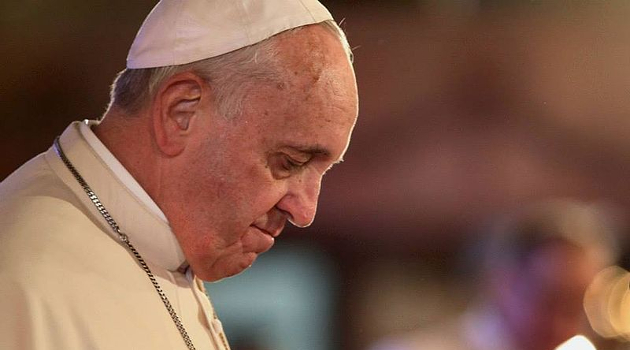I first opined about Pope Francis in 2013, when I told a BBC audience why the Pope was wrong on economic policy.
The following year, I expanded on that point, explaining that statist policies are bad for the poor. And I revisited the issue again last year.
I’m not the only one making these arguments. In a column for Reason, Stephanie Slade explained why Pope Francis is deeply misguided.
I’ve had some harsh words to describe Pope Francis. …the pontiff’s ignorance of basic economics has led him to a bad conclusion about which public policies are best able to reduce the crushing yoke of poverty in the world.
…as a matter of empirical fact, markets are the single greatest engine for growth and enrichment that humanity has yet stumbled upon. …He seems to be arguing that an outlook that places the individual above “the common good” is morally suspect. …his statements betray a shallowness in his understanding of the philosophy he’s impugning. If he took the time to really engage with our ideas, he might be surprised by what he learned. …what Pope Francis calls an “antisocial” paradigm…is better known by another name: the liberty movement, a cooperative and sometimes even rather social endeavor among people who cherish peaceful, voluntary human interactions.
Sadly, there’s zero evidence that Pope Francis has learned any economics since taking up residence in the Vatican.
For instance, he just visited Mauritius, a small island nation to the east of Madagascar.
His economic advice, as reported by Yahoo, was extremely primitive.
Pope Francis on Monday urged Mauritius, a prosperous magnet for tourists and a global tax haven, to shun an “idolatrous economic model” that excludes the youth and the poor… While the island is a beacon of stability and relative prosperity,
Pope Francis honed in on the struggles of the youth… “It is a hard thing to say, but, despite the economic growth your country has known in recent decades, it is the young who are suffering the most. They suffer from unemployment, which not only creates uncertainty about the future, but also prevents them from believing that they play a significant part in your shared history,” said the pope. …Since independence in 1968, Mauritius has developed from a poor, agriculture-based economy, to one of Africa’s wealthiest nations and financial services hub. …General unemployment is low compared to the rest of the continent at 6.9 percent in 2018 according to the World Bank…
I’m glad the article acknowledges that Mauritius has been economically successful.
Though I’m frustrated by the failure to explain why.
So I’ll redress that error of omission by showing that Mauritius dramatically expanded economic liberty in the 1980s and 1990s. The nation’s absolute score jumped from 5.11 in 1980 to 8.07 in the most-recent estimates from Economic Freedom of the World.
It’s done such a good job that Mauritius is now ranked as the world’s 9th-freest economy.

So what has greater economic liberty produced?
More national prosperity.
A lot more. Based on the Maddison data, you can see that living standards (as measured by per-capita GDP) have tripled over the past three-plus decades.
I confess that I’ve never been to Mauritius.
So maybe it’s possible that the country is filled with “idolotrous” folks who think of nothing but money.
But I’m guessing that people in Mauritius are just like the rest of us. But with one key difference in that they’ve been following the recipe for growth and prosperity.
Too bad Pope Francis instead believes in the Peronist model that has wreaked so much havoc in Argentina.
P.S. The Pope should read Stephanie Slade’s column. Walter Williams and Thomas Sowell also should be on his list.
———
Image credit: Benhur Arcayan, Malacañang Photo Bureau | Public Domain.


